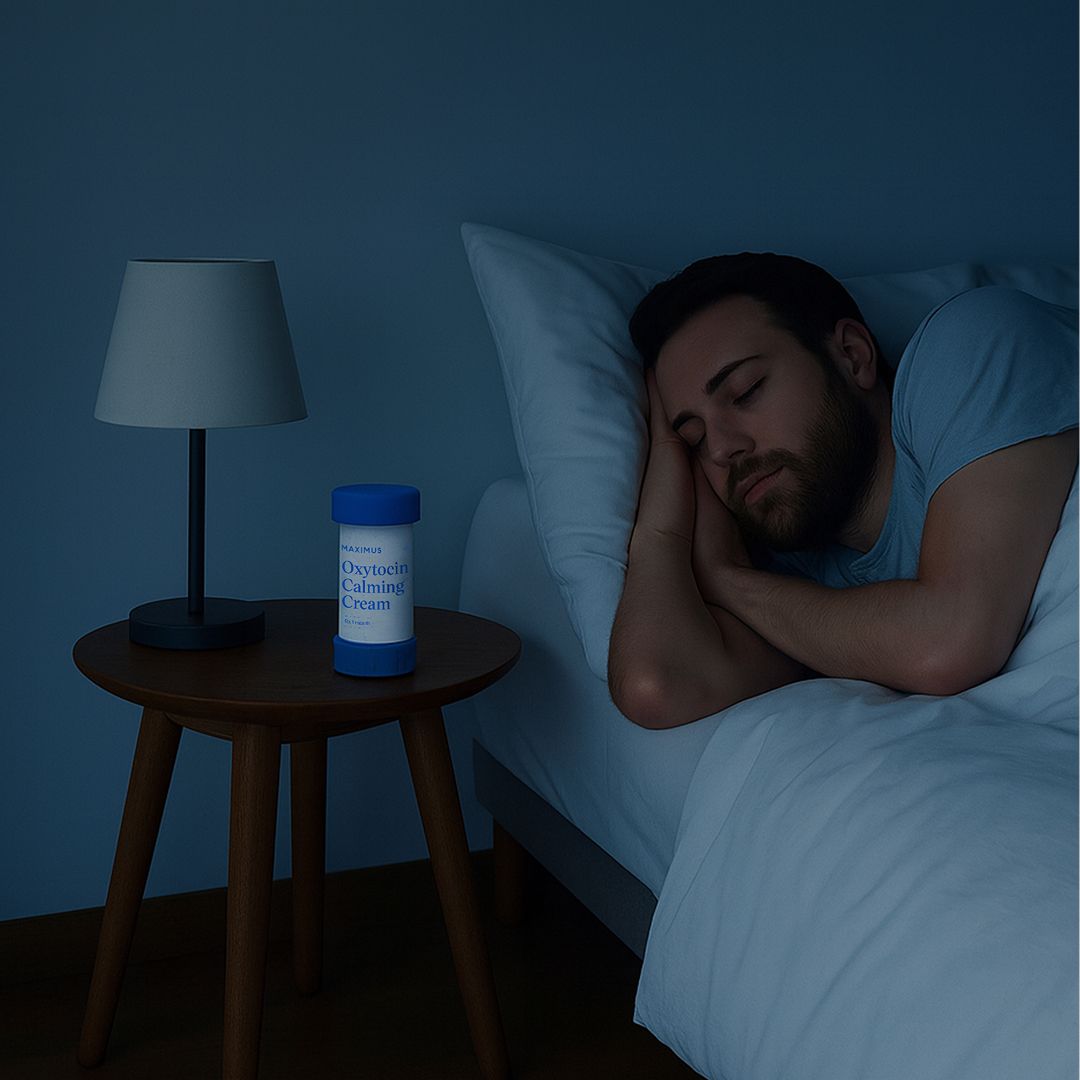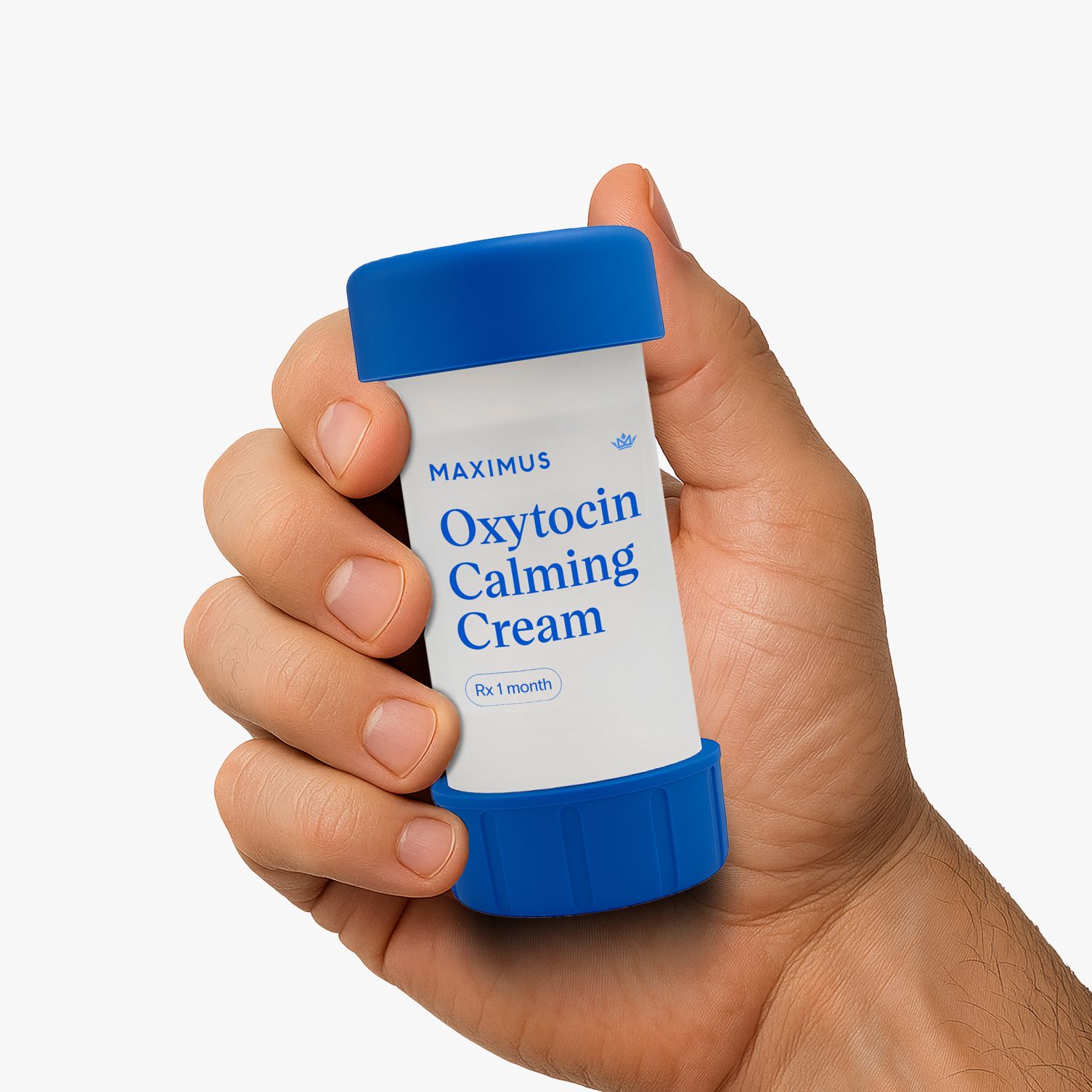Key takeaways:
- Some of the well-documented benefits of TRT include improved sexual desire, enhanced sexual activity, positive effects on erections, increased muscle mass, significant and sustained weight loss, improved cognitive function, and improved mood.
- TRT side effects include testicular shrinkage, decreased sperm count, breast growth, heart problems, increased risk of prostate cancer, worsening sleep apnea, acne, aggression, and dependency.
- All forms of TRT carry risks, but oral TRT is associated with fewer side effects compared to injections and transdermal preparations.
A drop in physical activity, a rise in poor dietary habits, and prolonged exposure to environmental toxins has taken a toll on men’s testosterone (T) levels, which have been in decline over the past several decades. Testosterone replacement therapy (TRT) is a highly effective and popular treatment for men struggling with symptoms of low testosterone, such as reduced libido, erectile dysfunction, increased body fat, and depression.
This article will explore the many proven benefits of taking exogenous testosterone (aka synthetic testosterone), which form is associated with fewer side effects, and what you should know about the risks.
Exploring the benefits of testosterone replacement therapy
Low testosterone levels are defined by some experts as >300 ng/dl and by others as >250 ng/dlTRT. Among individuals with legitimately low testosterone levels, TRT is associated with many well-documented benefits, and these often outweigh the risks. Harvard Health advises men with borderline T levels to be cautious about taking TRT, but they note that TRT can significantly improve the quality of life for men who have not responded to other treatments. Interestingly, different forms of TRT carry different side effects that range in severity, which we’ll dive into shortly.
The deal with TRT and libido
Will going on TRT increase your sex drive? Signs point to yes. According to this 2022 review, a large body of research shows that testosterone therapy is linked to improved sexual desire. In some cases, the improvements varied depending on the treatment dose, but often addressed many different aspects of sexual function like erections, sexual motivation, desire, and performance.
However, when we look to this fairly large 2023 study, the results are still impressive but not as comprehensive. The researchers found that TRT significantly improved sexual desire — and this benefit that held strong for two years — but the treatment had no effect on erectile function.
Does TRT increase erections?
Both animal and human studies have found that low testosterone interferes with the proper production or release of nitric oxide synthase and phosphodiesterase type 5, two main enzymes involved in the erection process, leading to erectile dysfunction (ED). Taking TRT on its own has proven to be a successful ED treatment in various instances, including this large study that looked at subjects across 23 countries. Over a year of TRT treatment, among 1,493 men with low testosterone who were enrolled in the study, 1,438 men experienced significant improvements in sexual desire, erectile function, and overall quality of life. Specifically, the number of patients with moderate or severe ED decreased from 67% to just 19%.
Research indicates that these positive effects can also be maintained over a longer period of time. In a study that followed up with patients over the course of eight years, patients on TRT saw an increase in their erections and a decrease in their waist circumference, body fat, and cholesterol.
In most studies, patients with lower levels of testosterone saw more impressive results from TRT than those with low-normal and normal baseline testosterone levels. Some people who may not benefit as significantly include those with People with comorbidities like metabolic disorder and type 2 diabetes may not benefit as significantly from TRT. Among people with these conditions, a combination therapy consisting of TRT and PDE5 inhibitors is typically recommended.
Will TRT lead to muscle gains?
Some forms of TRT reign supreme when it comes to increasing muscle mass, research shows. According to this 2018 study, TRT injections administered to middle-aged and older men, some of whom had low testosterone, appeared to be more effective in enhancing muscle mass and overall body strength than TRT patches and pills.
TRT might also increase muscle mass in men with normal testosterone levels. In this small 12-week study, all nine subjects experienced an increase in muscle mass due to increased muscle protein synthesis, with the average increase in muscle mass coming in around 20%.
How TRT affects weight loss
There is a strong correlation between low testosterone and obesity. But the good news is, studies show that long-term TRT therapy can lead to significant and sustained weight loss and a notable reduction in waist circumference and body mass index (BMI), all without the likelihood of rebound weight gain.
As the above study shows, TRT may also improve high overall cholesterol, low-density lipoprotein cholesterol (aka LDL or “bad cholesterol”), and triglyceride levels. Researchers credit these improvements to better mitochondrial function, more efficient energy use, and less fatigue, leading to improved cardiometabolic function (this includes aspects of health related to your heart, blood, and blood vessels) and better physical activity.
TRT therapy also appears to be better than other weight-loss strategies in terms of reducing body fat instead of muscle. This study shows that when men lost weight with diet and exercise, approximately 25-35% was muscle and other fat-free body mass, and not fat. Similarly, in men who lost weight with bariatric surgery, muscle and other fat-free mass made up 20-50% of weight lost. In controlled studies, dieting men who received a placebo experienced loss in both body fat and muscle, while those on TRT predominantly lost body fat and preserved muscle.
How TRT impacts cognitive functioning
As people age, one of the most common concerns is worsening brain health. But TRT may help. In studies of men 55 and older with mild cognitive impairment or Alzheimer's disease, six weeks of testosterone replacement therapy improved their spatial and verbal memory and their ability to build and draw objects. These cognitive enhancements are said to be the result of improved blood flow to the brain.
But it isn’t just older men who experience the brain-boosting benefits of TRT. Young and middle-aged men with low testosterone may see improvements, too. In one study where subjects were on TRT for two years, they saw improvements in their attention, visual scanning ability, executive function, and psychomotor speed. Despite these benefits, the researchers pointed out that the study subjects didn’t experience any improvements in their emotional state or quality of life.
Does TRT impact your mood?
Though the previously mentioned study didn’t identify quality of life improvements among people taking TRT, several other studies have found the opposite to be true. TRT has been associated with improved mood and well-being, reduced fatigue and irritability, reduced anxiety, and decreased anger, nervousness, and irritability. In some instances, TRT has been compared to an antidepressant because of its ability to boost mood.
Does TRT give you energy?
Sometimes it can be really hard to get out the door and hit the gym. But TRT may actually improve some people’s desire to exercise. Researchers believe the main way this happens is by increasing energy. In this study, patients treated for over a year with TRT showed significant improvement in their fatigue levels.
There’s also evidence that TRT improves energy and motivation in many other contexts — it’s not just all about workout gains. For instance, patients on TRT have reported having more energy to succeed at work, be a good father, and to be assertive, with the most improvement seen in men over 40.
Exploring the side effects of TRT
Despite TRT’s many proven benefits, this treatment still carries some risks. Some of the documented side effects include:
- Testicle shrinkage
- Decreased sperm count and quality
- Breast growth
- Heart issues
- Increased prostate cancer risk
- Worsened sleep apnea
- Acne
- Aggression
- Dependency
When you come off TRT, you may also experience side effects like rebound weight gain, moodiness, and lower motivation and libido due to your testosterone levels dropping significantly. To lessen or avoid these effects, doctors typically recommend weaning off TRT while using a medication like enclomiphene that helps restore your testosterone levels without needing to take testosterone.
What is the safest form of testosterone replacement therapy?
All forms of TRT carry their own risks,but these risks range in severity. In addition to the side effects mentioned above, injections are known to cause significant fluctuations in testosterone levels, increasing the likelihood of mood swings and changes in libido, sexual function, and energy. Given that testosterone injections are associated with pain and swelling, the method of delivery can be off-putting for some people.
Transdermal TRT (such as a testosterone patch) carries the same risks as injections, but is not associated with the major fluctuations in T levels that are often seen with injections. However, there’s another risk to consider — transdermal TRT can be transferred to others, which can be problematic, especially if transferred to women and children. When transferred to children, transdermal TRT can lead to the development of pubic hair, enlargement of genitals, increased number of erections, advanced bone age, aggression, and other signs of early puberty. When transferred to females, transdermal TRT can cause masculine features like increased body hair, acne, and irregular periods, as well as skin irritation.
Though oral TRT may not lead to the significant peaks in T levels seen with injections, it’s said to be similarly effective in increasing testosterone to normal levels and improving body composition. It’s also said to improve quality of life in terms of mood and sexual function. The upside to avoiding the major fluctuations seen with other forms of TRT is that oral TRT also carries fewer side effects. Some possible side effects include nausea, headaches, and upper respiratory tract infections, along with a slightly elevated risk of high blood pressure. Similar to other forms of TRT, oral TRT may also have a suppressive effect on fertility, although the impact on fertility is less severe than with injections.
From improving erectile function and increasing libido to maximizing your muscle gains, it’s clear that TRT offers a promising solution for men grappling with low testosterone symptoms. But before taking this path, be sure to weigh the pros and cons of different TRT preparations so you can make an informed decision for your health.
Disclaimer: The contents of this article, including, but not limited to, text, graphics, images, and other information, is for information purposes only and does not constitute medical advice. The information contained herein is not a substitute for and should never be relied upon for professional medical advice. The content is not meant to be complete or exhaustive or to be applicable to any specific individual's medical condition. You should consult a licensed healthcare professional before starting any health protocol and seek the advice of your physician or other medical professional if you have questions or concerns about a medical condition. Always talk to your doctor about the risks and benefits of any treatment. Never disregard or delay seeking professional medical advice or treatment because of something you have read on this site. Maximus does not recommend, endorse, or make any representation about the efficacy, appropriateness, or suitability of any specific test, products, procedures, treatments, services, opinions, healthcare providers or other information contained herein. Maximus is not responsible for, nor will they bear any liability for, the content provided herein or any actions or outcomes resulting from or related to its use.





